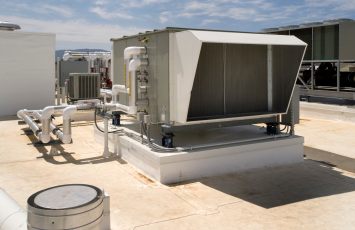Asset Registry Updates Supercharge Maintenance Management Compliance in Healthcare
Michael Hardy
Asset Management Leader | Bureau Veritas - Buildings & Infrastructure Group
When it comes to collecting, analyzing, and managing data, it's easy to think that it's too costly. However, one should also consider the repercussions of making uniformed decisions based on incomplete or outdated information. Inaccurate data can lead to bad outcomes and poor performance, which can cost organizations significantly more than investing in accurate data in the first place. Ultimately, the choice isn't between spending money or not, but rather between investing in favorable outcomes or paying to rectify bad ones. So, the next time you're tempted to cut corners on data, think twice about the long-term consequences.
Maintenance management plays a crucial role in supporting compliance requirements in healthcare facilities by ensuring that the physical environment is safe and functional for patients, staff, and visitors. Healthcare facilities are subject to numerous regulations and standards, including those set by government agencies such as the Centers for Medicare and Medicaid Services (CMS), the Joint Commission, and the Occupational Safety and Health Administration (OSHA). Maintenance management helps healthcare facilities meet these regulations and standards by providing ongoing maintenance, repair, and replacement of equipment and systems, conducting regular inspections, and maintaining accurate records. By prioritizing maintenance and compliance, healthcare facilities can ensure a safe and secure environment for all who enter its doors.
Since maintenance management can impact (for better or worse) everything from patient satisfaction to regulatory compliance, a modest investment in accurate data through an Asset Registry Update is one of the best investments a healthcare facility can make as it will pay dividends for years to come.
IBM estimates that poor quality data costs the U.S. $3 trillion each year.
Asset registry data account for only a portion of that, of course, but a lack of accurate data can have a significant impact on maintenance management in healthcare facilities. Here are some of the ways data quality can affect maintenance management in healthcare:
- Difficulty in prioritizing maintenance tasks: Without accurate data, it can be challenging to identify which equipment or systems are in the most urgent need of maintenance. This can result in delays in necessary repairs and maintenance, which can lead to equipment failure, longer downtime, and increased costs.
- Inefficient use of resources: Maintenance management requires resources such as time, money, and personnel. Without accurate data, healthcare facilities may end up spending resources on unnecessary or ineffective maintenance activities. This can lead to wasted resources and higher costs.
- Increased risk of equipment failure: Accurate data is crucial for predicting when equipment is likely to fail and scheduling maintenance accordingly. Without this data, equipment failure can occur unexpectedly, leading to unplanned downtime and potential risks to patient safety.
- Reduced effectiveness of preventive maintenance: Preventive maintenance is critical in healthcare facilities to avoid equipment failure and ensure a safe environment for patients and staff. Without accurate data, preventive maintenance schedules may not be optimized, and equipment may be over-maintained or under-maintained, leading to potential risks.
- Challenges in tracking and reporting: Accurate data is necessary to track maintenance activities and generate reports for regulatory compliance and internal record-keeping. Without accurate data, it can be challenging to maintain a complete and up-to-date maintenance record, which can lead to compliance issues and potential legal problems.
Asset data, or more specifically, ACCURATE, UP-TO-DATE asset data is essential for effective maintenance management in healthcare facilities. Without it, healthcare facilities may face challenges in prioritizing maintenance tasks, using resources efficiently, preventing equipment failure, optimizing preventive maintenance, and tracking and reporting maintenance activities.
Healthcare facility managers are being pulled in so many directions that the idea of preventative maintenance feels impossible. The good news is that the computerized maintenance management systems (CMMS) they already use to create, and track work orders can help.
By optimizing the CMMS, facility managers can cut utility costs, streamline operations, and even stay on top of preventive maintenance. Read more in our Blog, Master Preventive Maintenance by Optimizing your CMMS!
Bureau Veritas is focused on the condition of your healthcare assets. From long-term capital planning to ADA assessments, our team provides a wide spectrum of services to ensure your properties are effectively operating, accessible, code-compliant, aesthetically pleasing, and environmentally friendly. Through unbiased assessments, helpful and knowledgeable staff, and a nationwide presence with regional knowledge, BV is the leading choice for your facilities projects.
ASSET MANAGEMENT SERVICES:
- Facility Condition Assessments
- Capital Planning
- Equipment Inventory & Tagging
- Preventive Maintenance Programs
- ADA Assessments & Consulting
- Feasibility Studies
DUE DILIGENCE SERVICES:
- Property Condition Assessments
- Phase I ESA
- Green PCA
- Site Condition Surveys
- Site Investigation Reports
- Seismic Risk Assessments
EXPANDED ASSESSMENT SERVICES:
- Roof Assessments
- Storm Assessment Restoration
- Paving Evaluations
- Water Intrusion Assessments
- Drone Surveys
- Fuel System Inspections
KEY BENEFITS OF BV FACILITY SERVICES:
- Understanding of building system life-cycle issues
- Defensible capital plans
- Facility Condition Index (FCI) benchmarking
- Clear, regular maintenance requirements
- Identification of potential safety hazards
- Opportunities for energy conservation and budget savings
- ADA compliance


